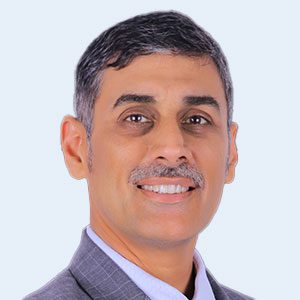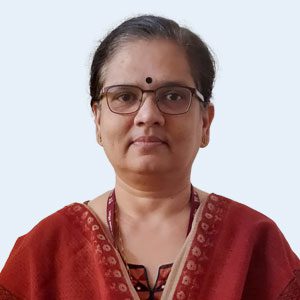Keane Benson
Faucibus libero – semper non elit lacus libero ac auctor lorem dolor consequat.
Faucibus libero – semper non elit lacus libero ac auctor lorem dolor consequat.
Nullam aliquet, libero ac auctor finibus consequat placerat erat ante sed.
Orci varius natoque penatibus et magnis dis parturient montes, nascetur ridiculus mus.
Ipsum dolor sit amet, consectetur adipiscing elit sed do magna enim ad minim veniam.
Sed eget volutpat est, quis bibendum dui pellentesque eleifend ligula a rutrum erat.
 Bishal Thapa
Bishal ThapaSenior Director, India, CLASP
Bishal brings 22 years of global experiences working with a wide range of public and private sector partners across energy, climate, energy efficiency, environment, and sustainability. He brings expertise in designing, developing, and implementing multi-dimensional energy sector projects with governments, development agencies and private sector entities. As an economist by training, his expertise includes financial analysis, quantitative modelling, policy, research and project design. He also has demonstrated track record in the design, implementation, and financing of distributed energy systems, having worked extensively with on and off-grid solar solutions. Outside of work, Bishal is an avid writer, frequently focusing on political and social issues. He holds a master’s degree in economics from the University of Maryland and an undergraduate degree in economics, mathematics, and political science from Monmouth College.
Session Brief:
In this session, we will examine the surging energy demand within India’s residential sector, driven by factors such as population growth, urbanisation, and rising incomes. This sector accounts for a substantial 30% of the nation’s total energy consumption. The rapid electrification of households has increased reliance on electrical appliances for various purposes, including cooking, heating, cooling, and entertainment. To confront this challenge and curtail carbon emissions, our discussion will delve into strategies and initiatives to reshape and transform the energy-efficient appliance market. The objective is to make these appliances more accessible and affordable for all. Throughout the session, we will be joined by experts and stakeholders who will share valuable insights, strategies, case studies and replicable innovative solutions. We will particularly emphasise the pivotal role of policy instruments, such as the Standards and Labelling program, in driving this transformative change.
Session Speakers:
 Abhishek Gupta Head- International, Strategy, EESL
Abhishek Gupta Head- International, Strategy, EESL Bishal Thapa Senior Director, India, CLASP
Bishal Thapa Senior Director, India, CLASP Neha Dhingra Senior Manager, India, CLASP
Neha Dhingra Senior Manager, India, CLASP Shweta Kulkarni Fellow, Prayas Energy Group
Shweta Kulkarni Fellow, Prayas Energy Group Yash Shukla Center Head and Principal Researcher (CARBSE), CEPT University
Yash Shukla Center Head and Principal Researcher (CARBSE), CEPT University Pravatanalini Samal Director, Bureau of Energy Efficiency
Pravatanalini Samal Director, Bureau of Energy Efficiency Rahul Ramtekkar RAMA
Rahul Ramtekkar RAMA Neha Dhingra
Neha DhingraSenior Manager, India, CLASP
Neha joined CLASP in January 2013 with seven years of experience and expertise in energy efficiency and carrying out policy analysis nationally and internationally. Neha provides technical and programmatic support to CLASP’s projects on appliance energy efficiency in India and globally. Prior to joining CLASP, Neha worked with EcoSecurities India for promotion of carbon revenue generation for renewable energy projects. She holds a master’s degree in Natural Resources Management from The Energy and Resources Institute (TERI) University, Delhi. She enjoys traveling, reading, and playing badminton.
 Fred Sherman
Fred ShermanChief Operating Officer, CLASP
Fred Sherman has more than 20 years senior management experience and is currently the Chief Operating Officer of CLASP, overseeing operations, IT, finance, and legal. He has held senior leadership positions for the nonprofit organizations BoardSource and The Gay & Lesbian Victory Fund and Leadership Institute, and prior to that spent more than 15 years with PricewaterhouseCoopers. Fred has a history of community service and engagement and currently serves on the boards of several international organizations and has held leadership positions in each. Fred holds a Bachelor of Business Administration from The University of Texas at Austin and is a CPA/CGMA.
 Sumedha Malaviya
Sumedha MalaviyaWorld Resources Institute
Sumedha is a Senior Manager within the Energy Program at World Resource Institute India, where she specializes in building sector decarbonization and urban energy transition. Her responsibilities include serving as the project manager for the Zero Carbon Buildings Accelerator (ZCBA), a global initiative that assists governments in reducing carbon dioxide emissions from buildings by developing national ZCB roadmaps and subnational action plans, as well as implementing policies to promote the transition to zero-carbon buildings. In addition to leading research initiatives on building efficiency and residential sector energy use, Sumedha also conducts research on behaviour change interventions in the energy sector, with a focus on clean energy transition and energy governance.
Prior to joining WRI, Sumedha worked at ICF International, where she provided advisory services on energy-efficient appliances, Demand Side Management, and Low Emissions Development projects. She has co-authored book chapters and numerous articles on climate and energy topics in peer-reviewed journals.
Sumedha holds a Master’s degree in Natural Resources Management from TERI University in New Delhi, India.
 Satish Kumar
Satish KumarPresident & Executive Director, AEEE
Dr. Satish Kumar serves as the President and Executive Director of the Alliance for an Energy Efficient Economy (AEEE). Prior to AEEE, he was the Energy Efficiency Ambassador and led the Energy Management business at the Schneider Electric India, a Scientist at Lawrence Berkeley National Laboratory, and the Chief of Party for a USAID-supported bilateral energy efficiency technical assistance program (ECO-III) project. He has a Ph.D. from Carnegie Mellon and a B. Arch from IIT Roorkee), was nominated for an executive leadership program at Harvard Business School and the University of North Carolina, is a member on the TEAP’s Energy Efficiency Task Force under the Montreal Protocol, is a LEED Fellow (USGBC), Certified Energy Manager and Certified Measurement and Verification Professional (Association of Energy Engineers).
Session Brief:
The urgency for sustainable, energy-efficient buildings is increasing due to rising ESG expectations from both private and public sectors. India, aligning with its NDCs, aims to cut emissions intensity by 45% by 2030 and achieve net-zero by 2070. The country’s long-term strategy, introduced at COP27, emphasises reducing national power demand through improved energy efficiency in the building sector. Therefore, boosting energy efficiency in commercial buildings is crucial for India’s energy policy. Accurate data on energy use in buildings is essential for crafting effective policies. However, India lacks a data-driven approach for enhancing energy efficiency in existing buildings. This session underscores the need for data-driven solutions in commercial buildings amidst rising energy consumption and climate concerns. It will showcase advancements in building energy benchmarking in India, with examples from hospitals and airports. Additionally, it will provide insights from a leading IT company’s energy strategy and explore the role of benchmarking in setting performance standards, scaling retrofitting projects, and paving the way for performance-based building energy codes.
 Aneesh Kadyan Senior Executive Director, CBRE South Asia Pvt Ltd | Property Management – India
Aneesh Kadyan Senior Executive Director, CBRE South Asia Pvt Ltd | Property Management – India Guruprakash Sastry AVP Head, Climate Action, Infosys
Guruprakash Sastry AVP Head, Climate Action, Infosys Jyotirmay Mathur Professor, MNIT Jaipur
Jyotirmay Mathur Professor, MNIT Jaipur Shruti Narayan Regional Director for South and West Asia, C40
Shruti Narayan Regional Director for South and West Asia, C40 Saket Sarraf Founder and Principal, psCollective
Saket Sarraf Founder and Principal, psCollective Akash Goenka Associate Fellow, AEEE
Akash Goenka Associate Fellow, AEEE Satish KumarPresident & Executive Director, AEEE
Satish KumarPresident & Executive Director, AEEE
Session Brief:
The session, “Policy to Practice: Energy Efficiency in Sub-national Climate Actions,” will explore the critical challenge of translating ambitious climate action policies into tangible, real-world results. While cities and states have made significant strides in crafting climate action plans that include energy efficiency measures, the session recognises the need to bridge the gap between intention and implementation. Expert panellists will explore how cities are foundational to broader state efforts and how action plans are vital initial steps in addressing climate change. The discussion will dive deep into strategies and approaches for transforming these plans into actionable initiatives, addressing key factors like financing, technology integration, job creation, and socio-economic benefits. Ultimately, this session aims to facilitate triple-sector dialogue and cooperation, identify practical implementation strategies, and showcase successful city and state-level actions in energy efficiency, paving the way for a greener, more efficient tomorrow.
 Kishore Kumar Manager, CLASP
Kishore Kumar Manager, CLASP Rekha Rawat Associate Director cKinetics
Rekha Rawat Associate Director cKinetics Veena Sinha CEO, Railway Energy Management Company Limited (REMCL)
Veena Sinha CEO, Railway Energy Management Company Limited (REMCL) Sumedha Malaviya Senior Manager – Energy Program, WRI
Sumedha Malaviya Senior Manager – Energy Program, WRI Sudha Setty Founder, Melyoura, International Consultant and Coach
Sudha Setty Founder, Melyoura, International Consultant and Coach Rekha Rawat
Rekha RawatAssociate Director cKinetics
Rekha Rawat is an Associate Director at cKinetics, a Sustainability Advisory and Capital Innovation Firm. Rekha leads the Sustainable Industries practice at cKinetics and has led several multi-country programs in the energy transition, resource efficiency and circular economy domains. She has been particularly engaged in developing collaborative frameworks and policy mechanisms pertaining to resource usage (with focus on Water/Wastewater/Energy-Water nexus) across industrial, domestic, and agricultural end-uses.
She is also a part of the cKinetics team working on sub-national programs in India with focus on industrial action including the financing pathways for upscaling the efforts in this direction.
Session Brief:
This is an Ask Us Anything session for students and early career professionals to learn about the skills that will be in demand as the world economy pivots towards decarbonisation, and where corporates and governments focus on delivering on their net-zero commitments. The session will be moderated by Prasad Vaidya, Director of Solar Decathlon India, and others experienced with placement and recruiting in this area will answer questions and share what they look for in candidates.
Session Brief:
We are all aware that buildings account for nearly 40% of global CO2 emissions. Within this, HVAC systems contribute to about 40% of the overall energy consumption. The industry is witnessing the evolution of technologies with better, more efficient products and solutions, but we often come across building operators struggling to align with the intended design efficiency of the plant versus the actual efficiency. This gap is even more pronounced, especially when HVAC loads fluctuate throughout the year. Most of the time, building owners have no control over the situation.
We would like to take this opportunity to discuss and focus specifically on how a well-designed HVAC system can assist building owners and operators in moving toward achieving their sustainability goals by right-sizing their buildings. Perhaps only about 30% of designs use advanced tools built on ASHRAE time series methods or ASHRAE heat balance methods, which are more complex yet more accurate. Among these tools, Carrier HAP (Hourly Analysis Program) stands out because it uses the ASHRAE heat balance method, offering greater accuracy and the ability to input precise weather data (nearly 8000 locations worldwide). It also seamlessly integrates drawings, providing a graphical approach to creating building models for peak load and energy modeling projects. Its rich built-in library helps designers compare multiple options to a base case, establishing potential energy savings.
In this session, we aim to provide an overview of the possibilities that a design engineer can explore with a hands-on tool like HAP, helping them move toward sustainability in their designs.
 Prashant DixitDeputy General Manager – Commercial Applied Solutions, Carrier Air-conditioning & Refrigeration Limited
Prashant DixitDeputy General Manager – Commercial Applied Solutions, Carrier Air-conditioning & Refrigeration Limited Prashant Dixit
Prashant Dixit Deputy General Manager – Commercial Applied Solutions
Carrier Air-conditioning & Refrigeration Limited
Prashant, with over 23 years of extensive industry experience, serves as the leader of the Commercial Applied Solutions business in South India. His role encompasses pre-sales and technical support while managing prestigious key accounts spanning commercial, data centers, infrastructure, healthcare, and more. Prashant also spearheads the Carrier Club Solitaire initiative in India, a unique program focused on disseminating insights into technological advancements in the HVAC field.
An accomplished professional, Prashant holds a Bachelor of Engineering (E&E) degree from Karnataka University (BVB College of Engineering, Hubli) and a PGDBA from Narsee Monjee Institute of Management Studies (NMIMS). His credentials include LEED accreditation from both the US Green Building Council (USGBC) and the Indian Green Building Council (IGBC), as well as WELL accreditation from the International Well Building Institute (WELL AP). Prashant is widely recognized as a Subject Matter Expert (SME) in centralized air-conditioning, and he passionately imparts technical knowledge through internal and external training programs. He is a sought-after speaker at industry events organized by esteemed bodies such as ISHARE and ASHRAE, addressing both industry experts and students. In his leisure time, Prashant enjoys writing literature in his native language, Kannada.
Session Brief:
This session will explore the essentials of developing a market for demand flexibility in India. The session aims to delve into the core elements of market creation, including policy and regulatory considerations, strategies for demand-side resource acquisition, program types and business models, and the pivotal roles played by various entities. This session will equip attendees with the current landscape, from regulatory frameworks to emerging market trends, results from pilot projects, and discover the challenges and opportunities. Designed for energy professionals, policymakers, regulators, utilities, and technology providers, this session concisely explores a crucial aspect of clean energy transition.
 Nandan MahaleDirector, Strategy and Transformation, Schneider Electric
Nandan MahaleDirector, Strategy and Transformation, Schneider Electric  Sunil SharmaGeneral Manager (GM) – Sustainability and Cleantech
Sunil SharmaGeneral Manager (GM) – Sustainability and Cleantech  Shweta KulkarniFellow, Prayas Energy Group (PEG)
Shweta KulkarniFellow, Prayas Energy Group (PEG) Sumedha Malaviya
Sumedha Malaviya Manager, CLASP
Sumedha Malaviya is a Senior Manager within the Energy Program at World Resource Institute India, where she specializes in building sector decarbonization and urban energy transition. Her responsibilities include serving as the project manager for the Zero Carbon Buildings Accelerator (ZCBA), a global initiative that assists governments in reducing carbon dioxide emissions from buildings by developing national ZCB roadmaps and subnational action plans, as well as implementing policies to promote the transition to zero-carbon buildings. In addition to leading research initiatives on building efficiency and residential sector energy use, Sumedha also conducts research on behaviour change interventions in the energy sector, with a focus on clean energy transition and energy governance.
Prior to joining WRI, Sumedha worked at ICF International, where she provided advisory services on energy-efficient appliances, Demand Side Management, and Low Emissions Development projects. She has co-authored book chapters and numerous articles on climate and energy topics in peer-reviewed journals.
Sumedha holds a Master’s degree in Natural Resources Management from TERI University in New Delhi, India.
 Kishore Kumar
Kishore KumarManager, CLASP
Kishore Kumar is a seasoned professional, serving as a Manager at CLASP’s India office, with a remarkable career spanning over 13 years in the realm of energy efficiency sector. He is a dedicated advocate for combating climate change and has consistently assumed leadership roles in crafting and refining appliance efficiency policies across diverse sectors in India, including cooling, lighting, domestic, commercial, and industrial domains.
Kishore successfully collaborated with governments, civil societies, and the private sector in both India and South Asian countries. Through strategic program design, development, management, and implementation, he has left an indelible mark on the appliances market, driving substantial positive change.
Armed with a post-graduate degree in energy systems, Kishore extensive experience are invaluable assets in advancing policies for a more sustainable future.
 Veena Sinha
Veena SinhaCEO, Railway Energy Management Company Limited (REMCL)
Veena Sinha is the CEO of REMCL, serving at a senior management level on deputation. Veena has held distinguished positions within the Ministry of Railways and the Government of India. At the middle management level, she served as the Senior Divisional Electrical Engineer in Delhi, Deputy General Manager, CORE Allahabad, and Director, MNRE. At the senior management level, she held the position of CESE, Northern Railways. Her areas of expertise encompass rolling stock operation and maintenance, power supply and HVAC, railway electrification, new and renewable energy, international cooperation, as well as information and public awareness.
Veena’s academic credentials are impressive, with an M.Tech, an MBA, and certification as an Energy Auditor. She is currently delving into the field of psychology.
 Sunil Sharma
Sunil SharmaFounder, Melyoura, International Consultant and Coach
Sudha Setty, founder of Melyoura and an International Consultant and Empowerment Coach, has nearly 25 years of leadership in the non-profit sector, focusing on clean energy and coaching.
She has consulted on various clean energy projects in South Asia. Her expertise spans across government relations, policy advocacy, project management, and partnerships, with significant contributions to water and energy efficiency, cooling coalition, cold chain and clean cooking. Sudha established the Alliance to Save Energy, USA, in India and Sri Lanka, and also played a key role at the Alliance for an Energy Efficient Economy (AEEE), India.
She holds an M.A. in Sociology (India) and a Master of Public and International Affairs (USA), and is a Certified Business Coach and trainer.
 Pravatanalini Samal
Pravatanalini SamalDirector, Bureau of Energy Efficiency
Ms. Samal has 16 years of experience in Energy Management and Policy across various sectors of the Indian economy. She was actively involved in various activities under National Mission for Enhanced Energy Efficiency (NMEEE) for compliance to various rules and notifications under Perform Achieve and Trade (PAT) scheme. Her roles include developing and coordinating state-level schemes for State Designated Agencies (SDAs) for implementation of the Energy Conservation Act, and serving as a key coordinator for the “Bachat Lamp Yojana”, a CDM-based lighting scheme, ensuring the issuance of Certified Emission Reductions (CERs) by UNFCCC. She is presently working on the Standards and Labelling program for BEE.
 Rahul Ramtekkar
Rahul RamtekkarRAMA
Rahul, brings with him an extensive background encompassing 15 years of invaluable experience within the HVAC industry. His expertise spans a multitude of key areas including product development, product regulation management, standards development, intellectual property rights (IPR), and the new product development (NPD) process.
He holds Master’s degree in Mechanical Engineering Design, from IIT Bombay. At present, Rahul serves as the driving force behind the Regulation Management at Johnson Controls-Hitachi India, where he plays a pivotal role ensuring the product compliance in line with the market’s regulation requirements. Rahul’s versatile contributions extend across all facets of HVAC product domains, where he has been instrumental in design, testing, and certification initiatives.
A noteworthy facet of his recent career involves his instrumental role in representing the industry’s interests at regulatory bodies such as BIS and BEE. Rahul is an active member at RAMA ( Refrigeration and Air Conditioning Manufacturers Association ) , a premier organization which is actively involved in policy issues of the AC&R industry and engages with BEE, BIS, Ozone Cell ( MoEFCC) on industry issues. His deep and varied experience makes him an invaluable addition to the panel, ensuring a wealth of insights and expertise in the HVAC industry.
 Nandan Mahale
Nandan MahaleDirector, Strategy and Transformation, Schneider Electric
Nandan brings about 20 years of industry experience spread across multiple domains and collaborated with teams from diverse geographies.
He holds a bachelor’s degree in mechanical engineering and certifications in management from INSEAD and IIMB. Currently, he serves as the Director of Strategy and Transformation for Hub International (India, MEA, South America, Pacific).
He launched his career in R&D, taking the lead on the design & industrialization of several key projects for breakers (Final low voltage-MCB/RCCB /DB) and LV panels. After working in R&D, he made a significant career leap by transitioning to marketing where he managed offers across the UK, MEA, India, East Asia, and Australia. In his most recent roles, he had worked with the India front office team, leading offer marketing, business development, and strategy for H&D. His contributions were instrumental in the prosperous inception and expansion utilizing numerous pilot initiatives to refine market entry strategies and set the groundwork for sustained success.
Session Brief:
Climate tech entrepreneurs are playing a vital role in developing and deploying innovative solutions to address this challenge. This panel discussion will bring together climate tech entrepreneurs, industry experts, and investors to discuss the current state of climate tech entrepreneurship in India and how to accelerate its growth. The panelists will highlight the challenges and opportunities facing climate tech entrepreneurs in India, the role of industry, academia, and the investment community in supporting climate tech entrepreneurs, and how to de-risk climate tech investments to accelerate the commercialization of climate tech innovations. The session will also help to identify concrete steps that can be taken to support climate tech entrepreneurs and accelerate the development of climate tech solutions.
 Sunil Sharma
Sunil SharmaGeneral Manager (GM) – Sustainability and Cleantech
A key member of BYPL’s Sustainability & Cleantech team is leading various initiatives under Renewables, Demand Side Management, E-Mobility, Energy Storage and Energy Efficiency contributing significantly to emission reduction efforts. He has a rich experience of over 19 years in power sector covering commercial, regulatory aspects, consulting, construction, renewable energy and new technologies. A significant part of his experience was with management consulting firms serving various Govt. and large private sector clients in a leading role. He has served clients across many states in India and has been associated with some international mandates in Kuwait, Benin, Tanzania.
He is also managing business development and collaborations and is actively working with multilateral agencies and thinktanks to bring in new technologies and practices in power distribution. He has been part of many research based assignments under EU/DST is currently implementing ESG framework.
 Saket Sarraf
Saket SarrafFounder and Principal, psCollective
Dr Saket Sarraf is the founder and Principal at ps Collective, a platform for advocacy, research, policy analysis, and consultancy to promote sustainable development. He is passionate about using data-driven approaches to tackle complex challenges. His current work focuses on equity, policy research, modelling, and decision support systems. With over 25 years of experience in India and the USA, he has worked with a wide range of clients, including government agencies, multilateral and bilateral projects, national and international foundations, advocacy groups, and corporates. He has been part of various building energy performance and benchmarking initiatives in India over the last decade including working with the Lawrence Berkely National Lab as a guest scientist. He was instrumental in developing India’s first Building Energy Performance Evaluation and Benchmarking Tool for commercial buildings that was adopted by the Bureau of Energy Efficiency. Dr. Sarraf holds a Ph.D. and a Master’s degree from the University of Illinois at Urbana Champaign, USA where he received the prestigious ‘Outstanding Ph.D. award’. He also has a Bachelor of Architecture (Hons.) from the Indian Institute of Technology, Kharagpur, India. In addition to his research and consultancy work, Dr. Sarraf is actively involved in teaching and community service.
 Akash Goenka
Akash GoenkaAssociate Fellow, AEEE
Akash Goenka is a clean energy transition professional who keenly understands India’s energy efficiency policies and their interplay with climate change. He works at Alliance for an Energy Efficient Economy (AEEE) as an Associate Fellow. His domain expertise is in climate-friendly cooling, developing national cooling action plans, and building sector energy efficiency. Akash has staked AEEE’s stronghold as a climate-friendly cooling expert in the global arena, established South-South cooperation between India and other Southeast Asian countries on climate-friendly cooling, and instituted a new programme at AEEE around primary energy data. Akash is a mechanical engineer from VIT University, Vellore, with a master’s degree in sustainable energy futures from Imperial College London.
 Shruti Narayan
Shruti NarayanRegional Director for South and West Asia, C40
Shruti Narayan is C40’s Regional Director for South and West Asia. With global experience spanning over two decades, she leads C40’s regional efforts to mainstream climate action for resilient and equitable cities. Before joining C40, Shruti has worked in several key global organisations such as Arup and USAID, she joined C40 from the International Finance Corporation working on municipal financing. In addition she has been a visiting faculty at several academic institutions such as Stanford University, California College of Arts and School of Planning and Architecture. She is particularly passionate about working with students and women-led groups in building a strong and supportive community of climate champions.
 Jyotirmay Mathur
Jyotirmay MathurProfessor, MNIT Jaipur
Dr. Mathur works in the field of energy planning and modeling, building energy simulation, energy conservation in buildings, and life cycle assessment of renewable energy systems. He has in his credit 110 journal papers, more than 200 talks, several research projects including 5 international collaborative projects besides having supervised 21 Ph.D. scholars. Current activities include studies on adaptive thermal comfort, modeling of passive and low energy cooling systems, development of standards and codes for energy efficiency, long term energy system modeling penetration of renewable energy.
 Guruprakash Sastry
Guruprakash SastryAVP Head, Climate Action
Guruprakash Sastry is a sustainability leader with over 19 years of experience. As Head of Climate Action for Infosys, he is responsible for driving decarbonization and environmental sustainability initiatives across the organization.
Over the past 15 years at Infosys, he has been instrumental in implementing several innovative technologies in building design, energy, water and waste management. Infosys has set new benchmarks for resource efficiency in the buildings industry and is considered a global leader in environmental sustainability.
Guruprakash represents Infosys at UN ESCAP’s Sustainable Business Network and is a Fellow of Indian Green Building Council.
Guruprakash has a Master’s degree in Sustainable Energy Engineering from Royal Institute of Technology, Stockholm. He is a LEED Accredited Professional from US Green Building Council and a Certified Energy Auditor from Bureau of Energy Efficiency.
 Aneesh Kadyan
Aneesh KadyanSenior Executive Director, CBRE South Asia Pvt Ltd | Property Management – India
Aneesh Kadyan oversees the growth and development of the Property Management business for the India region, encompassing a portfolio of over 225 Million Sq ft spread across 250 buildings in the commercial, retail and residential sectors.
Aneesh served with the Indian Navy’s submarine fleet prior to joining CBRE in 2005. He has held various roles in CBRE during the last 18 years and currently manages a team of over 1700 professionals who service more than 130 clients.
Aneesh’s focus areas are identifying ways to enhance the value of assets as well as experience of occupants in the buildings through technology and superior customer service. He is a Professional Engineer and an active member of ISHRAE and holds a masters degree in Engineering. He regularly speaks at industry forums and is a regular contributor to trade magazines on the subject of climate change, sustainability and building management technology.
 Yash Shukla
Yash ShuklaCenter Head and Principal Researcher (CARBSE), CEPT University
Dr Yashkumar Shukla is the Principal Researcher and Center Head of Centre for Advanced Research in Building Science and Energy (CARBSE). Dr Shukla has more than seventeen years of international experience in conducting research and in providing consulting serves in the domain of building energy efficiency. He has served as a lead on several ground-breaking energy-efficiency research projects including low energy cooling and ventilation system in Indian residences, evaluation of innovative cooling technologies, and monitoring and benchmarking of Indian buildings. His current research also includes calibration of simulation models, smart grids, low cooling energy systems, performance characterization of the novel envelope and air conditioning systems, and development of the next-generation control algorithms. He is presently serving as a team lead on the technical assistance program by Asian Development Bank focused on building disease resilient, smart, energy-efficient air conditioning systems for developing member countries. His prior work experience also includes providing technical support in designing and implementing demand-side management (DSM) programs energy-efficiency programs for electric utilities throughout the US.
 Shweta Kulkarni
Shweta KulkarniFellow Prayas Energy Group
Shweta is a fellow with Prayas (Energy Group). She has over 10 years of experience in the energy policy and regulatory space with a focus on energy efficiency, access, smart metering and distributed renewable energy at Prayas. She has also worked extensively on the electricity supply quality and residential energy consumption remote monitoring initiatives of Prayas. She is a member of several committees constituted by State and Central Governments, including CEA, NITI Ayog and Ministry of Power. Her interest areas also include climate change adaptation, urban development, and transport. She has a Masters in Climate Change and Sustainable Development from CEPT University, Ahmedabad and a Bachelors in Information Technology.
 Abhishek Gupta
Abhishek GuptaHead- International, Strategy, Project Evaluation & Assessment (Energy Efficiency Services Limited)
Professional with 23 years of experience in energy and infrastructure sectors with specific intent towards sustainable development through Energy Efficiency, Renewable Energy, Energy Conservation, Carbon Finance, Environmental and Social Impact Assessment, Women Empowerment, Net Zero building, Clean Cooking etc.He has been instrumental in devising business strategy for Demand Response, ESCO, EPC & Annuity model,Sustainable cooling, distributed renewable generation, Demand Side Management, Demand Aggregation, Energy Audit etc.
He has been successful in making definite contribution in Energy sector by formulating sustainable business strategies, managing P&L, developing innovative business models for achieving Sustainable Development Goals and Net Zero target, building enterprising teams delivering renewable as well as energy efficiency projects in Asia, Middle East, and Africa region.
Kamal Kishore has worked on disaster risk reduction and recovery issues for over 22 years at the local, national, regional and global levels. Prior to joining the National Disaster Management Authority, he worked with the United Nations Development Programme (UNDP) for nearly 13 years in New Delhi, Geneva and New York. At UNDP headquarters he led global advocacy campaigns to address disaster risk reduction concerns in the UN’s Sustainable Development Goals and the post-2015 development agenda. As programme advisor, he also led the development of disaster and climate risk management related elements of the UNDP Strategic Plan (2014-17).
Previously,as UNDP’s regional advisor for South and South-West Asia, he supported more than 10 countries on a range of public policy and institutional development issues, while also advising them on the use of appropriate risk reduction tools and methodologies. Kamal Kishore has supported post-disaster recovery through strategic advice, needs assessments, programme development, and coordination after major disasters in Bangladesh, India, Indonesia, Iran, Myanmar, Pakistan, the Philippines and Sri Lanka.
Prior to UNDP, he served at the Asian Disaster Preparedness Centre as Director of Information and Research, and Manager of the Extreme Climate Events Programme covering Indonesia, the Philippines and Vietnam. This was preceded by intensive field experience with The Action Research Unit for Development (TARU) in India where work on post-disaster reconstruction and resettlement after two major disasters – the Uttarkashi and the Latur earthquakesin 1991 and 1993–allowed him to apply his professional skills as an architect.
Kamal Kishore has a Bachelor’s degree in Architecture from the Indian Institute of Technology, Roorkee, and a Master’s degree in Urban Planning, Land and Housing Development from the Asian Institute of Technology, Bangkok.
Nihar Shah is Presidential Director of the Global Cooling Efficiency Program at Lawrence Berkeley National Laboratory, leading research on alternate refrigerants and energy efficiency for Heating, Ventilation, Airconditioning and Refrigeration (HVAC&R) equipment, including Berkeley Lab’s research in support of the Clean Cooling Collaborative in India, China, South-east Asia, and various emerging economies. He is a member of the Refrigeration, Air-conditioning and Heat Pump Technical Options Committee(RTOC) of the Montreal Protocol. His other research interests include advanced manufacturing, circular economy, anti-fragility and water technology and policy.
Nihar’s work has been featured in various media including Scientific American, Economist, Washington Post, New York Times, Forbes Magazine, NPR, PRI and numerous other publications. He serves on a number of advisory boards and committees and regularly advises multilateral institutions, financial institutions, governments, regulators and industry on a variety of energy technology and policy issues.
Prior to joining Berkeley Lab, Nihar worked at the California Public Utilities Commission(CPUC)’s Public Advocates Office. He received a Ph.D. in Mechanical Engineering from the University of California, Berkeley, an M.Tech. in Thermal and Fluids Engineering and a B.Tech. in Mechanical Engineering, both from the Indian Institute of Technology, Bombay. He is a licensed Professional Mechanical Engineer in the State of California.
Anita Marangoly George has a distinguished and global track record in investments in sustainability. She is the co-founder of Edhina Capital focused on investments in climate change solutions.
She is currently an independent director on the Board of Tata Sons, First Solar USA, and Piramal Enterprises. Anita serves on the Advisory Council of the International Solar Alliance (ISA) and is Advisor to the Berkeley Center’s India Energy Transition Center and the Chandrakanta Kesavan Energy Policy and Climate Solutions center at IIT, Kanpur.
Anita was Executive Vice President and Head of Emerging Markets for Caisse de Depot et Placement du Quebec (CDPQ), Canada’s second largest pension fund Manager for six years and credited with significantly increasing investments in Emerging Markets. Anita worked for 22 years with the World Bank Group and was Senior Director Global Practice for Energy between 2014 to 2016. Prior to this, she built a great infrastructure business in IFC in her capacity as Director of Asia Pacific and Global Co-Head for Infrastructure and Natural Resources. She has been a pioneer in sustainable finance in emerging markets.
Everester and Founder, The Rug Republic
An accomplished entrepreneur, designer, TEDx speaker, and author, Aditya Gupta founded The Rug Republic, a sustainable home fashion brand sold in 85 countries, and owns the Sharda Exports, a “Great Place To Work” Certified Company.
Starting with his parents’ small business in Meerut, he transformed Sharda Exports into a multi-hundred crore brand. Sharda Exports is renowned for its high standards of creativity, reliability, and responsibility, supplying rugs, poufs, pillows, and home décor accessories globally. Committed to environmental and social responsibility, their businesses support 5000+ families, with The Sharda Foundation contributing to philanthropic causes.
In addition to exports, he ventures into construction, realty, e-commerce, and financial investing. Featured in various media outlets, including Inc. Magazine, he is also an intrepid adventurer, reaching the summit of Mount Everest in 2019 at the age of 50. His coffee table book, “7 Lessons from Everest,” shares valuable insights from his climb, applicable in both business and life.
An exceptional orator, he inspires audiences to conquer their personal “Everest” in business and life through his captivating talks.
 The three main global energy concerns of providing access to modern energy, enhancing the security of the energy supply, and minimising the impact of energy systems on the climate have an impact on both national and international energy governance. To develop solutions that address the many facets of these difficulties, however, a variety of actors and stakeholders must be included due to the complexity of the energy challenges.
The three main global energy concerns of providing access to modern energy, enhancing the security of the energy supply, and minimising the impact of energy systems on the climate have an impact on both national and international energy governance. To develop solutions that address the many facets of these difficulties, however, a variety of actors and stakeholders must be included due to the complexity of the energy challenges.
The main sub-themes under governance will be:
 Cities are responsible for more than 70% of the world’s energy consumption and 40% to 50% of its greenhouse gas emissions. Managing increasing urbanisation is a challenge, and nations must deal with the effects it will have on the environment in terms of energy and climate.
Cities are responsible for more than 70% of the world’s energy consumption and 40% to 50% of its greenhouse gas emissions. Managing increasing urbanisation is a challenge, and nations must deal with the effects it will have on the environment in terms of energy and climate.
India still has to identify the development pathways for these complicated energy service demands, therefore this sector offers the chance to improve future planning. The Indian economy will have to make long-term investments in the network of energy provision for homes, businesses, and other types of structures as well as for transportation, public constructed spaces, and other urban arrangements.
 Our transition to a future with lower carbon emissions depends heavily on buildings. They are our places of residence, rest, and employment; they also account for around one-third of the world’s greenhouse gas emissions and nearly 40% of the world’s energy usage.
Our transition to a future with lower carbon emissions depends heavily on buildings. They are our places of residence, rest, and employment; they also account for around one-third of the world’s greenhouse gas emissions and nearly 40% of the world’s energy usage.
The main sub-themes under buildings will be: